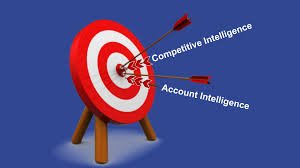Account intelligence is the strategic integration of first-party and third-party B2B data, enriched with artificial intelligence, to provide actionable insights. This empowers marketing and sales teams to gain a deeper understanding of target accounts, personalize engagements, and accelerate conversion rates. By merging internal company data with external market intelligence and behavioral analytics, businesses can create a comprehensive view of potential clients, enabling more informed decision-making and effective customer interactions.
Key Components of Account Intelligence:
- First-Party Data: Proprietary information collected directly from internal systems, including:
- CRM Data: Customer profiles, transaction records, and performance analytics.
- Marketing Automation Data: Digital engagement insights, email response patterns, and campaign interactions.
- Website Analytics: Behavioral data on website visits, content interactions, and lead generation sources.
- CRM Data: Customer profiles, transaction records, and performance analytics.
- Third-Party Data: External insights that supplement first-party information, providing a broader market perspective:
- Firmographic Data: Company size, revenue, industry classification, and geographic presence.
- Corporate Structure Insights: Understanding of organizational hierarchies and subsidiary relationships.
- Technographic Data: Intelligence on software stacks, IT infrastructure, and digital transformation maturity.
- Firmographic Data: Company size, revenue, industry classification, and geographic presence.
By synthesizing these data sources, businesses can better identify key decision-makers, assess purchase intent, and optimize engagement strategies, resulting in higher conversion rates and improved customer retention.
Business Benefits of Account Intelligence:
- Precision Targeting: Focuses on high-value accounts with the greatest revenue potential.
- Personalized Customer Interactions: Enhances sales and marketing efforts by tailoring messaging to specific account needs.
- Operational Efficiency: Reduces wasted resources by streamlining prospecting and qualification processes.
- Data-Driven Decision Making: Shifts strategy from intuition to evidence-based insights, increasing the likelihood of success.
By incorporating account intelligence into their go-to-market strategies, businesses can unlock competitive advantages, improve customer acquisition, and drive sustainable growth in the B2B marketplace.

